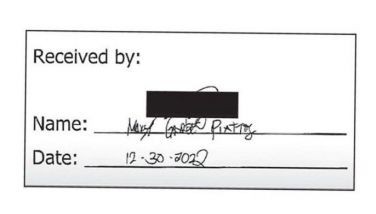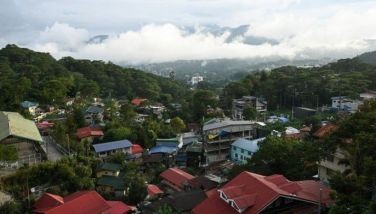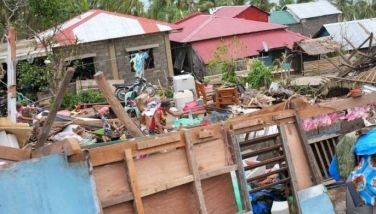Palace to lawmakers: Stop grandstanding over Cha-cha
December 20, 2005 | 12:00am
Malacañang asked legislators yesterday to stop using the proposals of the 55-member presidential consultative commission (con-com) on Charter changes as a basis for grandstanding, saying that the dissenting opinions of some con-com members show that the commissioners do not serve the interests of President Arroyo or the administration.
Press Secretary Ignacio Bunye also asked lawmakers not to grandstand on the con-com’s recommendations or malign "the eminent body" but to instead calmly debate the issues.
The con-com, chaired by Prof. Jose Abueva, turned over its recommendations to the President last week. The members of the con-com sub-committee on transitory provisions voted 22-19 on the proposal to scrap the 2007 polls.
"The dissenting opinion from a minority within the (con-com) is a clear manifestation of full democratic deliberations and refutes all insinuations that the commissioners were handpicked to serve the interest of the President or the administration," Bunye said.
"We ask our concerned lawmakers to refrain from grandstanding on the recommendations of the con-com and maligning the eminent body and to instead debate on the core issues at hand to enable our country to move forward and cope with the changing world around us," he said.
Over the weekend, Malacañang asked Mrs. Arroyo’s critics to give the con-com recommendations a chance because the country must not lose its momentum to amend the 1987 Constitution.
Executive Secretary Eduardo Ermita said the report will still be debated by Congress sitting as a constituent assembly next year and that final approval of the draft constitution that will be drawn up rests with a vote of the people.
The con-com recommendations, particularly the proposed transitory provisions to scrap the 2007 polls and extend the terms of incumbent elected officials to 2010, drew fire from opposition lawmakers who said the proposal was meant to "bribe" politicians to support Charter change, including efforts to shift to a unicameral parliamentary system.
Critics also said the transitory provisions would allow Mrs. Arroyo’s political allies to maintain their grip on power without the benefit of an election.
Opposition leaders said these proposed provisions would give the President more powers as an interim parliament would be set up from 2007 to 2010 wherein she would have "supervision and direction" over the interim Prime Minister.
Shortly after the con-com submitted its recommendation to the President some 22 commissioners submitted to Abueva a two-page dissenting opinion objecting to the transitory provisions. The President has since turned the report over to Congress. Of the 22 con-com members, however, only two voted against the final report, while two others abstained.
The objecting commissioners pushed for the deletion of Sections 7 and 8 of the proposed transitory provisions in the 121-page report submitted to the President.
"It could be construed as an attempt to entice our national and local officials to push for the passage of the revised constitution, in a myopic view that all our officials are only desirous of ensuring political tenure. Such a proposition is not only an insult to our public officials but more importantly, it is an affront on our people’s intelligence," the paper said.
The paper was signed by Angelo Abarico, Andres Bautista, Joji Ilagan-Bian, Jarius Bondoc, Noel Cariño, Pablo Garcia, Nelia Gonzalez, Rita Linda Jimeno, Gonzalo Jurado, Amado Lagdameo, Liberato Laus, Alexander Magno, Emily Marohombsar, Jose Sonny Matula, Democrito Mendoza, Vicente Paterno, Cecilio Seno, Betty Lourdes Tabanda, Efraim Tendero, Rey Magno Teves, David Tirol and Alfonso Yuchengco.
The dissenting con-com members said the contentious sections should be stricken from the body’s recommended constitutional amendments, otherwise the members "will be judged by history as the group of men and women who had no vision nor the capacity to voice the true concerns of the people."
Cariño said the provision they objected to will greatly endanger the ratification of the draft constitution next year, as the people are likely to protest their deprivation of the right to suffrage with the proposed cancellation of elections.
He said the con-com members were almost in full agreement on other proposed amendments, but many voted against the report only because of the controversial provision to scrap the elections.
He said the transitory provisions were not tackled in the nationwide consultations nor were they part of Executive Order No. 459, which created the con-com.
"I believe that the people would want a change in the form of government but still elections should be held in 2007," Bian said.
Bian disagreed with the proposal although most con-com members said the recommendation would mean an "easy transition" from a presidential to parliamentary form of government.
Meanwhile, Senate President Franklin Drilon scored Malacañang and the proponents of Charter change for pushing their own political "self-interest."
"The recommendation of the (con-com) to do away with the 2007 elections validates our fears that political self-interest will get in the way of legitimate amendments to the Constitution," Drilon said.
Drilon, who has been advocating the use of a constitutional convention to amend the Charter, also challenged Malacañang to dissociate itself from the con-com recommendation "because (it) is basically immoral for Congress to favor (this) as it is undisguised bribery. — Paolo Romero, Christina Mendez, Delon Porcalla, Edith Regalado
Press Secretary Ignacio Bunye also asked lawmakers not to grandstand on the con-com’s recommendations or malign "the eminent body" but to instead calmly debate the issues.
The con-com, chaired by Prof. Jose Abueva, turned over its recommendations to the President last week. The members of the con-com sub-committee on transitory provisions voted 22-19 on the proposal to scrap the 2007 polls.
"The dissenting opinion from a minority within the (con-com) is a clear manifestation of full democratic deliberations and refutes all insinuations that the commissioners were handpicked to serve the interest of the President or the administration," Bunye said.
"We ask our concerned lawmakers to refrain from grandstanding on the recommendations of the con-com and maligning the eminent body and to instead debate on the core issues at hand to enable our country to move forward and cope with the changing world around us," he said.
Over the weekend, Malacañang asked Mrs. Arroyo’s critics to give the con-com recommendations a chance because the country must not lose its momentum to amend the 1987 Constitution.
Executive Secretary Eduardo Ermita said the report will still be debated by Congress sitting as a constituent assembly next year and that final approval of the draft constitution that will be drawn up rests with a vote of the people.
The con-com recommendations, particularly the proposed transitory provisions to scrap the 2007 polls and extend the terms of incumbent elected officials to 2010, drew fire from opposition lawmakers who said the proposal was meant to "bribe" politicians to support Charter change, including efforts to shift to a unicameral parliamentary system.
Critics also said the transitory provisions would allow Mrs. Arroyo’s political allies to maintain their grip on power without the benefit of an election.
Opposition leaders said these proposed provisions would give the President more powers as an interim parliament would be set up from 2007 to 2010 wherein she would have "supervision and direction" over the interim Prime Minister.
Shortly after the con-com submitted its recommendation to the President some 22 commissioners submitted to Abueva a two-page dissenting opinion objecting to the transitory provisions. The President has since turned the report over to Congress. Of the 22 con-com members, however, only two voted against the final report, while two others abstained.
The objecting commissioners pushed for the deletion of Sections 7 and 8 of the proposed transitory provisions in the 121-page report submitted to the President.
"It could be construed as an attempt to entice our national and local officials to push for the passage of the revised constitution, in a myopic view that all our officials are only desirous of ensuring political tenure. Such a proposition is not only an insult to our public officials but more importantly, it is an affront on our people’s intelligence," the paper said.
The paper was signed by Angelo Abarico, Andres Bautista, Joji Ilagan-Bian, Jarius Bondoc, Noel Cariño, Pablo Garcia, Nelia Gonzalez, Rita Linda Jimeno, Gonzalo Jurado, Amado Lagdameo, Liberato Laus, Alexander Magno, Emily Marohombsar, Jose Sonny Matula, Democrito Mendoza, Vicente Paterno, Cecilio Seno, Betty Lourdes Tabanda, Efraim Tendero, Rey Magno Teves, David Tirol and Alfonso Yuchengco.
The dissenting con-com members said the contentious sections should be stricken from the body’s recommended constitutional amendments, otherwise the members "will be judged by history as the group of men and women who had no vision nor the capacity to voice the true concerns of the people."
Cariño said the provision they objected to will greatly endanger the ratification of the draft constitution next year, as the people are likely to protest their deprivation of the right to suffrage with the proposed cancellation of elections.
He said the con-com members were almost in full agreement on other proposed amendments, but many voted against the report only because of the controversial provision to scrap the elections.
He said the transitory provisions were not tackled in the nationwide consultations nor were they part of Executive Order No. 459, which created the con-com.
"I believe that the people would want a change in the form of government but still elections should be held in 2007," Bian said.
Bian disagreed with the proposal although most con-com members said the recommendation would mean an "easy transition" from a presidential to parliamentary form of government.
Meanwhile, Senate President Franklin Drilon scored Malacañang and the proponents of Charter change for pushing their own political "self-interest."
"The recommendation of the (con-com) to do away with the 2007 elections validates our fears that political self-interest will get in the way of legitimate amendments to the Constitution," Drilon said.
Drilon, who has been advocating the use of a constitutional convention to amend the Charter, also challenged Malacañang to dissociate itself from the con-com recommendation "because (it) is basically immoral for Congress to favor (this) as it is undisguised bribery. — Paolo Romero, Christina Mendez, Delon Porcalla, Edith Regalado
BrandSpace Articles
<
>
- Latest
- Trending
Trending
Latest
Trending
Latest
Recommended




























